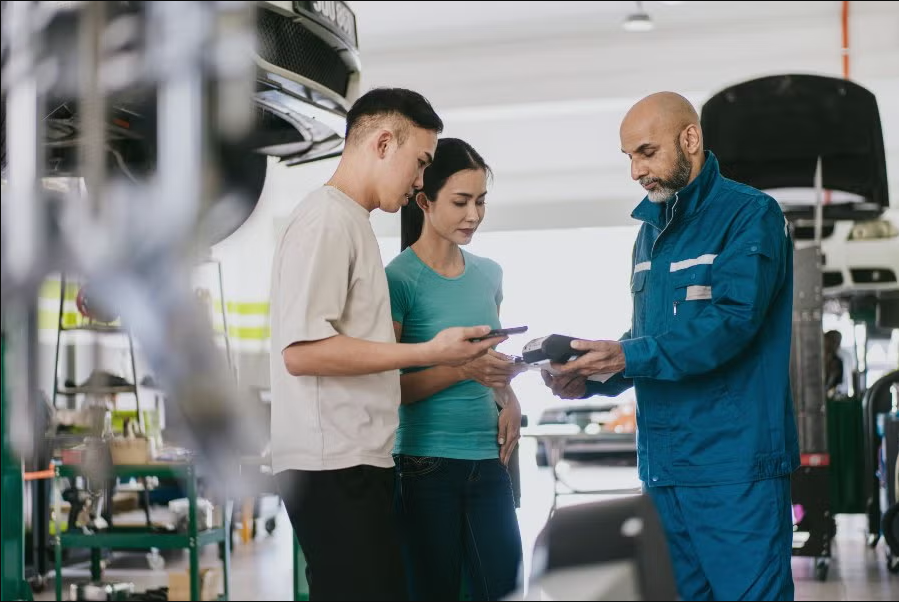The Pros and Cons of Buying a Used Car
The Pros and Cons of Buying a Used Car
Buying a car is a major financial decision, and one of the first choices you’ll face is whether to buy a new or used vehicle. While new cars offer the latest features and full warranties, used cars have become an increasingly popular option for budget-conscious buyers. With rising vehicle prices and a growing market for certified pre-owned (CPO) options, many people are opting for second-hand cars to get more value for their money.
But is buying a used car the right move for you? In this article, we’ll break down the key pros and cons of buying a used car, so you can make an informed and confident decision.
✅ The Pros of Buying a Used Car
1. Lower Purchase Price
The most obvious and immediate advantage of buying a used car is the lower price tag. Used vehicles typically cost significantly less than new ones, even if they are only a few years old. This can make higher-end models or premium features more accessible within your budget.
Example: A 3-year-old car that originally sold for $30,000 may now cost $18,000 or less—providing great value while still having many years of life left.
2. Less Depreciation
New cars lose value quickly. In fact, a new car can lose 20% to 30% of its value in the first year alone. After five years, the vehicle could be worth only half of its original price.
With used cars, depreciation is much slower. Someone else has already absorbed the initial drop in value, so if you choose wisely, your used car will retain its value more steadily.
3. Lower Insurance Costs
Insurance premiums are based, in part, on the value of the car. Since used cars are typically worth less than new ones, they are generally cheaper to insure. Additionally, you may be able to opt out of certain coverages like collision or comprehensive (if your car isn’t financed), further reducing your insurance bill.
4. More Car for the Money
Your budget can go further when buying used. You might be able to afford a better model, more features, or a larger vehicle than if you bought new.
For example: Instead of buying a brand-new economy sedan, you could purchase a used luxury vehicle with leather seats, advanced safety tech, and premium audio—at the same or even lower cost.
5. Certified Pre-Owned Options
Certified Pre-Owned (CPO) programs provide peace of mind when buying used. These vehicles have undergone multi-point inspections, come with extended warranties, and are sold by authorized dealers. CPO cars are often newer models with low mileage and good maintenance records.
Though CPO vehicles cost more than non-certified used cars, they offer many of the benefits of new cars without the steep price tag.
6. Lower Registration Fees and Taxes
In many regions, vehicle registration fees and sales taxes are based on the car’s value or age. A lower-priced used car usually means lower fees and taxes, saving you even more money over time.
❌ The Cons of Buying a Used Car
1. Unknown Vehicle History
Even with vehicle history reports like Carfax or AutoCheck, you may not know the full story of a used car. It could have undisclosed accidents, flood damage, odometer rollbacks, or poor maintenance history.
Buying from a reputable dealer and asking for maintenance records can reduce this risk, but it’s still a concern—especially in private sales.
2. Higher Maintenance Costs
Used cars, especially older ones, may require more frequent repairs and part replacements. While the lower purchase price may offset these costs, maintenance can add up if the car wasn’t well-maintained by previous owners.
Also, older vehicles may be out of warranty, meaning you’ll pay out-of-pocket for all repairs unless you buy an extended warranty.
3. Limited or No Warranty
Most used cars—unless certified pre-owned—do not come with a warranty, which can lead to costly surprises. If something goes wrong shortly after your purchase, you’ll be responsible for the repairs.
Some dealers offer short-term warranties (30 to 90 days), but these often cover only the basics and not major systems like the engine or transmission.
4. Fewer Financing Options
Financing a used car can be more challenging than financing a new one. Interest rates are often higher for used car loans, and some lenders limit how old the vehicle can be to qualify for financing.
You might also get shorter loan terms, which can mean higher monthly payments, even if the overall cost is lower.
5. Outdated Features and Technology
A used car might lack the latest safety and infotainment technology, such as adaptive cruise control, lane-keeping assist, Apple CarPlay, or backup cameras.
While some buyers don’t mind skipping these modern features, others may miss the convenience, especially if they’ve driven newer vehicles before.
6. Limited Selection and Availability
When buying used, you’re limited to what’s available in the market at the time. You may have to compromise on color, trim, or specific features, especially if you’re looking for a popular model.
Finding a well-maintained vehicle that fits all your criteria may take more time and effort than ordering a new car to your exact specifications.
Tips for Buying a Used Car Wisely
If you decide that buying used is right for you, here are a few tips to ensure a smooth and smart purchase:
- Set a realistic budget including taxes, insurance, and potential repairs.
- Get a vehicle history report to check for past accidents or title issues.
- Have a mechanic inspect the vehicle before buying, especially in private sales.
- Check reviews and reliability ratings for the make and model.
- Test drive the vehicle under different conditions (highway, city, hills).
- Don’t rush—take your time to compare options and negotiate the best deal.
Final Verdict: Is a Used Car Right for You?
Buying a used car is a great way to maximize your money and avoid steep depreciation. For many drivers, the cost savings outweigh the downsides—especially if the car has been well-maintained and inspected.
However, used cars come with some risk and uncertainty. If peace of mind, the latest technology, or warranty coverage is a priority, a new or certified pre-owned vehicle might be a better fit.
Ultimately, the right choice depends on your budget, preferences, and willingness to research. With due diligence and a smart approach, buying a used car can be a financially savvy and rewarding decision.










